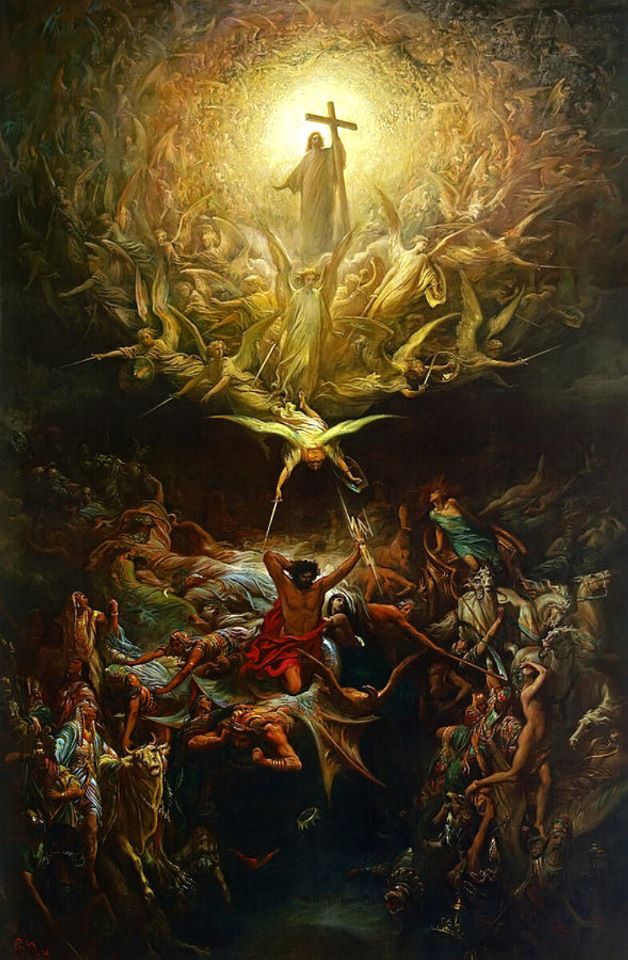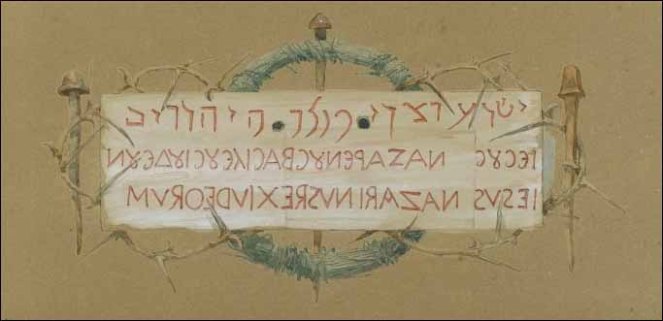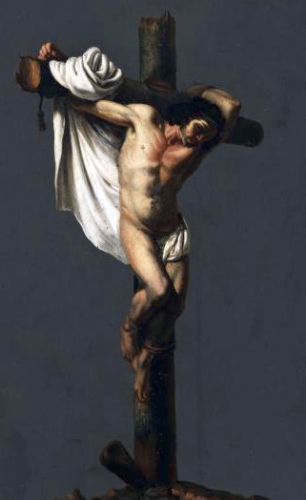Holy Week: Hey, Where You At? (Part 2)
Christ came to preach salvation by way of a kingdom: a kingdom that is not of this world, yet lays claim on this world to the degree His kingdom lays claim on our hearts.
Therefore, if it is a heavenly kingdom He preaches, it necessarily possesses a ruler, a King. And with it a citizenry, which means there are conditions for membership set by the King, and there are laws and a moral code of conduct that pay honor to that same King.
 Everyone in heaven acknowledges Christ as King. They are in heaven ultimately because they were found to be in a state of grace upon death. They are in the presence of God, in a place free from all error, sin, and corruption.
Everyone in heaven acknowledges Christ as King. They are in heaven ultimately because they were found to be in a state of grace upon death. They are in the presence of God, in a place free from all error, sin, and corruption.
And if Christ’s Kingdom extends from there to this world, it means that what is down here must be a reflection of what it is in heaven: there must be an acknowledgement of the same King as He truly is (Christ as both true God and true Man), there are conditions for membership – faith, and from that Baptism, and with that submission to the Christ’s Vicar on earth – and a moral code of conduct through which personal error and sin are identified and abandoned. Moreover, our Lord has every right to expect these conditions to be fulfilled right here on earth.
Once again, He meets us where we are at, and then expects that we get moving.
His argument with the Jews in the Gospel (cf. Jn. 8:36 ff.) reveals this expectation: Which of you will convince Me of sin? He asks, and when they accuse Him of having a devil, He retorts that they do not know God because they do not hear Him and will not believe His works. He comes flat out and tells them that He is God: Before Abraham was, I am, echoing the Name God told Moses from the burning bush, I am Who am (Ex. 3:14).
But despite all the evidence of the truth of Christ’s claim, because He shakes their world and demands conversion – they want to stay where they are – they grab stones and get ready to kill Him. We will not have this Man reign over us (Lk. 19:14). And in the background is Satan taunting Him again to get down from the Cross: if you want all the hungry to be fed, if you want all the sick to be cured, if you want the divorced and remarried to receive you in Communion, and everything else that goes with that, if you want to show mercy, get down from the Cross so they can “believe.”
How significant the charge that hung on the Cross: Jesus of Nazareth, King of the Jews, for Christ’s Kingship is the whole reason for the Crucifixion.

Where will He reign?
Ultimately, it is only by way of conversion, the acknowledgement of sin and error of which genuine mercy gives us the space to realize – and then repent – that we gain and secure admission into the kingdom of eternal life with our Savior. No one is beyond that if they be of good will.

Look at the good thief, Dismas, who at Calvary is the first person to call Christ King. Everything was lost and now, faced with the reality of eternal judgment, he definitively turns his back on his partner in crime on the cross to our Savior’s left: Have you no fear of God, he says to the other thief, this Man has done nothing wrong; we deserve what we are getting. Having defended Christ at the moment when everything seemed at its worst, he would receive his reward (Lk. 23:40-43).
The sight of his own guilt came to him and contrition along with it, a contrition which opened his eyes to what Christ already saw and was so thirsting to forgive: Blessed are the clean of heart, they shall see God (Mt. 5:8).
Christ met Dismas where he was at, and Dismas could not remain where he was. He looks at Christ – who has no semblance of any majesty or royalty – and cries out to be remembered when Christ comes into His Kingdom. Such a request was too much for our Lord to ignore.
We see this “weakness” of Christ throughout the Gospel whenever someone confessed Him as He desired, and how generously our Lord poured Himself out in return. As a spiritual writer comments: A paralytic came to Him to be healed; Jesus sent him away healed in both soul and body. A poor creature fell at His feet penitent; He made of her an intimate friend. An Apostle confessed Him to be the true Son of God, He made him to be the head of His universal Church.
It is no different here: true repentance met true mercy, and that repentance, in justice, now gets what it deserves: This day you will be with Me in paradise. Three crosses on Calvary, both thieves reached where they were at – and they readily stand for every one of us: one man saved, one man damned, no compromise from the Man in the middle who was too stubborn, academic, narrow, “unmerciful,” judgmental, and fanatical to get down.
With Holy Week underway, this most solemn time of the year, with the crucifixes and statues veiled, let us also enter into ourselves and take advantage of the graces given to admit where we may be too loose, too broad, and too accommodating so as to prevent Christ from meeting us where we are at.
Are we habitually in a state of sin?
Do we persist in dangerous or sinful relationships?
Do we refuse to forgive?
Do we not pray?
Is religion something on a checklist?
Have we given up on our marriages?
Are we too motivated by human respect?
Are we consumed with materialism?
The sooner we let Christ meet us where we’re at, the sooner we realize that the place we need to go is up on the cross alongside the King.
Because only there do we experience the mercy that will invite us to Paradise.
March 31, 2021








